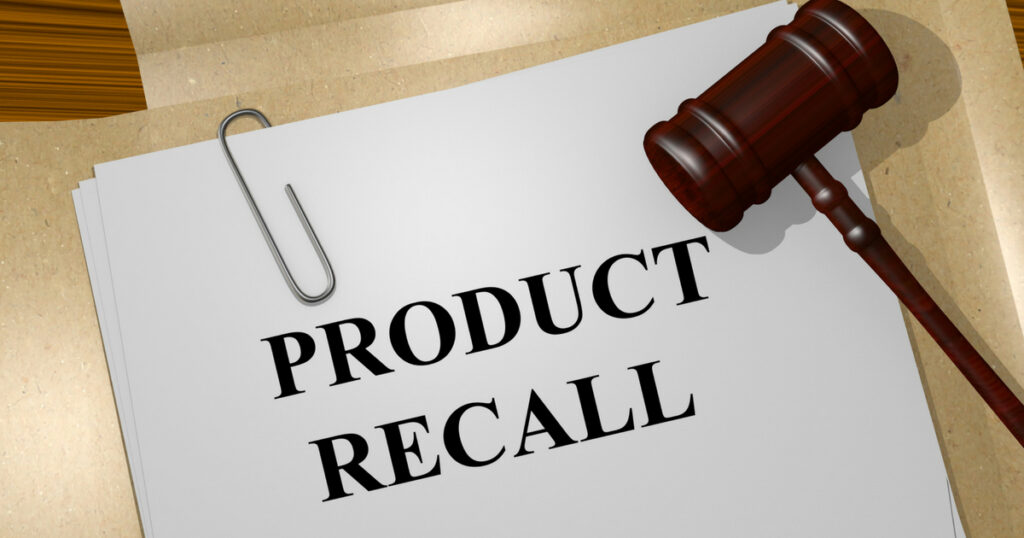
A well-known food company recalled two brand-name food products after four customers reported finding metal parts in their food. One of the world’s best-selling auto brands faced an airbag recall. And lettuce grown in Arizona caused dozens of illnesses in 35 states.
Product recalls like these are often in the news. They’re especially prominent when the federal government mandates that a company pull a supply of its product off the market based on safety concerns that affect consumers. A business can also trigger its own product recall when it suspects a defect or tampering could lead to customers or others suffering bodily injury or property damage.
But it’s not just big-name brands that face the risk. Beyond headline-making automakers, farmers and meat packers, industries such as manufacturers and suppliers of products are all at risk. These products include consumer goods, electronics, furniture and fixtures, and metal and plastic component parts.
Pulling a product back from the market can spike the company’s costs while putting a dent in the company’s reputation with prospects, customers and the community.
Commonly, businesses buy commercial general liability insurance coverage to protect their operations, employees and assets. But that type of policy typically does not cover the significant expenses a company can face if it has a product recall.
The right insurance protection can help mitigate the impact of some of those risks.
Here are 5 things your business should know about insurance coverage for a product recall:
- Businesses can purchase “product recall expense” insurance (separate from general liability coverage). This is “first-party” insurance coverage, meaning it reimburses a firm for some of its own costs in recalling a product.
- Product recall expense coverage can reimburse a company for a range of expenses such as: employee overtime; contractors and temporary employees; packaging, transportation and storage expenses; inspections and testing; and disposal of products.
- Other covered expenses could include: costs to replace the product; a customer’s loss of profit from using the company’s product in its own product; and “good-faith advertising” to communicate with customers to try to regain their approval. These coverages vary by policy and insurance company.
- The policy limits and cost of product recall insurance can vary by industry classification and other factors. Industrial machinery and food manufacturing businesses, for example, can face high product recall costs.
- The “trigger” of the insurance is important so that a company has coverage whether the government mandates a recall or the firm decides on its own.
Product Recall Insurance Claim Example:
An auto-parts manufacturer applied the improper paint to suspension parts. This could have led to excess corrosion and part failure – with the risk that a driver could lose control of the vehicle. Deciding to recall the parts, the parts maker faced costs of more than $86,000 for employee overtime, travel to visit customers, independent inspections, replacing products, and advertising. The company had protection through its product recall insurance as it recovered from this threat to its business.

